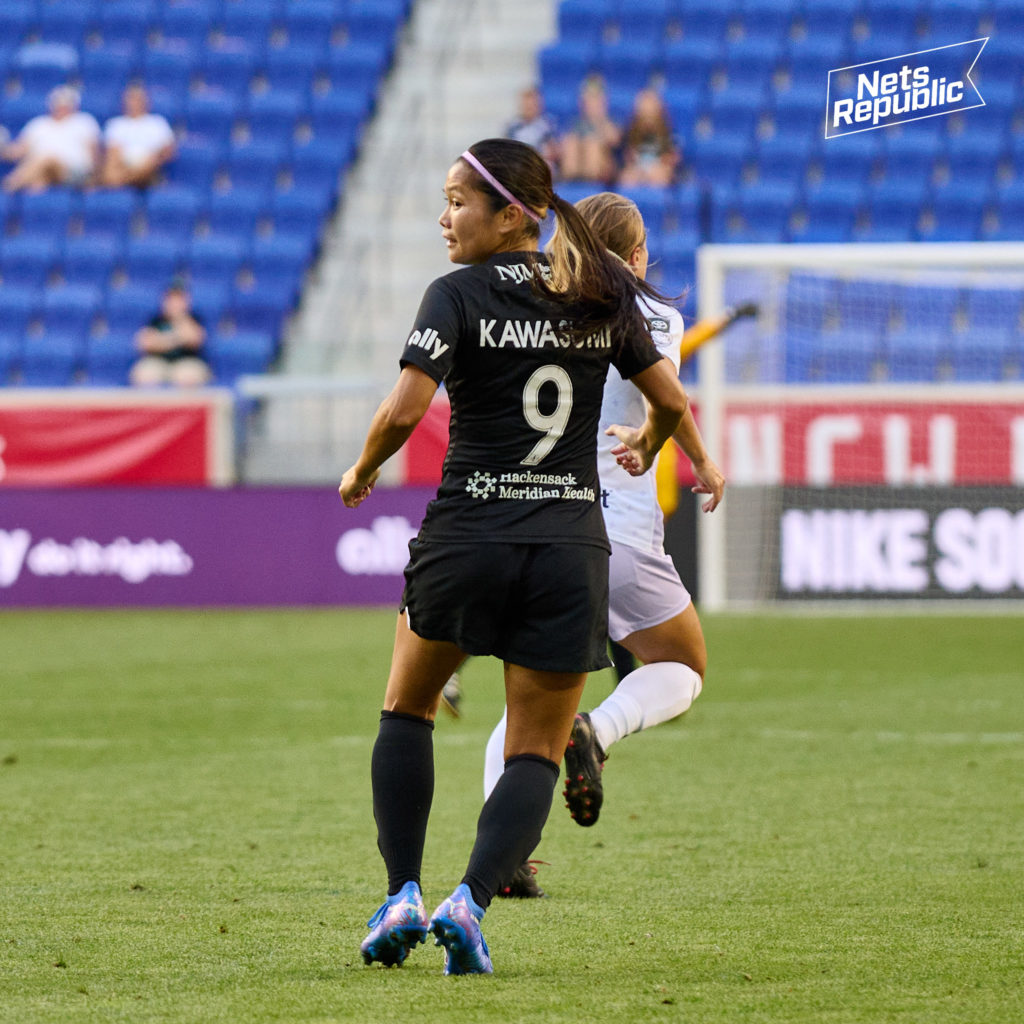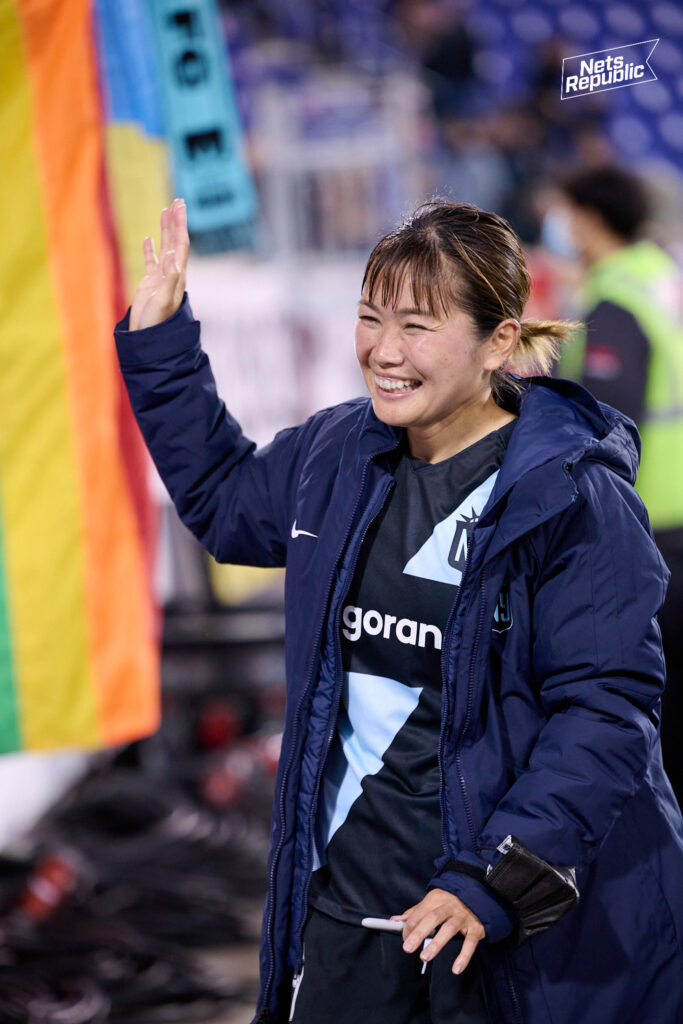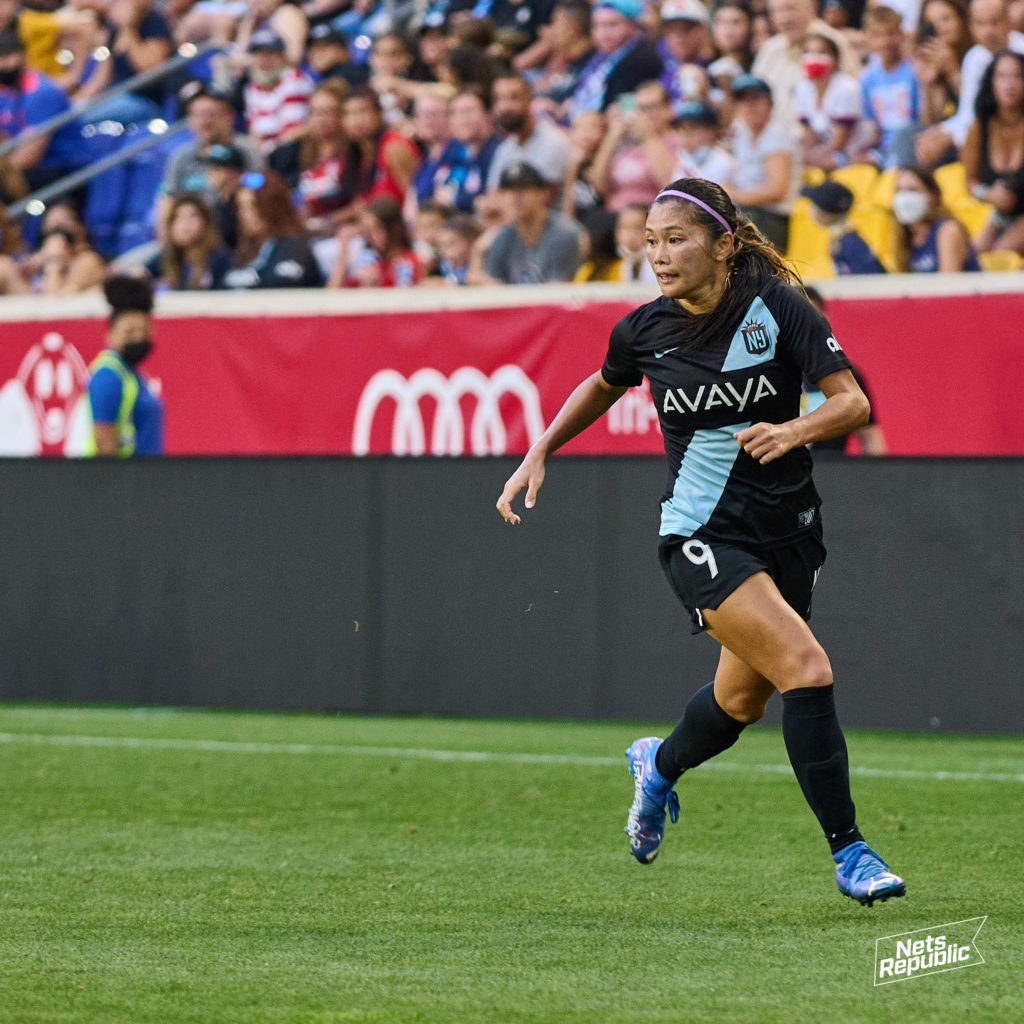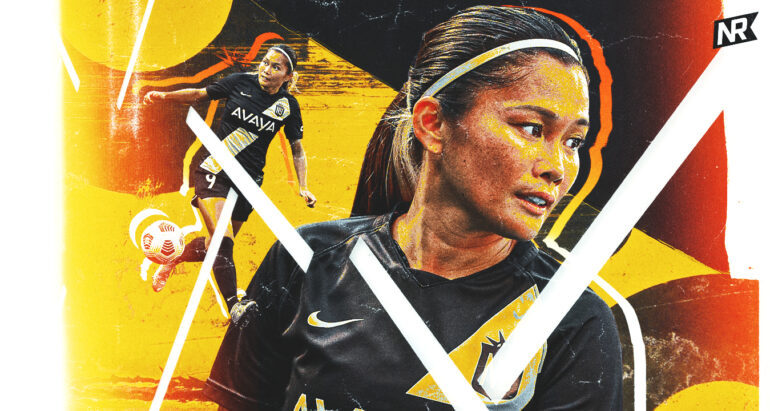The Local W spoke exclusively to Japanese International Nahomi Kawasumi about her time playing for Gotham FC. The interview was originally conducted in Japanese and quotes have been translated*.
Nahomi “Naho” Kawasumi had a calling. Although the Japanese international had just won a World Cup in 2011, there was another dream she was ready to fulfill: playing professional soccer in the United States.
“In the spring of 2013, I had a premonition that I would be playing overseas the following year. It felt like a calling. I was going to be there,” Kawasumi told The Local W.
Things were about to work out for Kawasumi, who was playing on INAC Kobe Leonessa in Japan’s Nadeshiko League. The club informed her of an opportunity to play in Seattle on loan with the NWSL team now called OL Reign. The timing was perfect, and she took the offer. During that loan period, she made 20 appearances and scored nine goals.
The next year, Kawasumi played with Japan in the 2015 World Cup in Canada where her team lost 5-2 to the United States in the final. Following that, Kawasumi eventually signed permanently with the Reign, where she played until she was traded in 2019 to NJ/NY Gotham FC, then called Sky Blue FC.

“In 2018, Seattle got a new coach. I was not getting as much playing time, and I was not starting. At the end of the season, I got an offer from Sky Blue,” Kawasumi said. “It is important as a professional player to play where you feel needed. Even though I loved my teammates in Seattle, my mission as a professional was to play as much as possible.”
The decision to move to New Jersey came with a similar feeling as when she moved to the United States from Japan. She knew that she needed to make a move, and the timing worked out perfectly again.
From Sea to Shining Sea
Since Kawasumi made the cross-country journey to join Gotham, the NJ/NY team has made significant strides, going from a bottom-of-the-table team to a playoff contender in just three years. Kawasumi has been impressed with the improvements the organization has made during this time on and off the field.
“When I first joined in 2019, we played on a college field, and those conditions were tough,” she explained. “Since then, the team has made an effort to improve the environment. For me, it was a great experience to see the effort that went into building this current environment worthy of a professional team.”
Now Gotham FC has access to top-notch facilities, a clubhouse, locker rooms, team meals, and a grass field. Kawasumi is grateful for the experiences she had together with her teammates in getting to this point. She is equally as impressed with the efforts the front office has made, and their achievements in pushing the club forward together.
“Everyone worked together – players, staff, and management. We all put in a tremendous effort to improve the club, and because of that, we were able to get to where we are now,” she said.
On the field, Kawasumi has been a critical component of Gotham FC’s midfield. In fact, she scored one of the most iconic NWSL goals of all time during the 2020 Challenge Cup where she caught Jane Campbell off her line and chipped her from midfield to help propel Gotham to the quarterfinals of that tournament.
Kawasumi scored an almost identical goal nine years prior, almost down to the day, in the 2011 World Cup semi-final match against Sweden to help secure their place in the final. Kawasumi’s efforts were a fundamental component of Japan’s historic World Cup victory that year.
“When I play in the US, scoring a goal is not my main focus. However, no matter what position I’m playing on the field, if I get a chance to score, I take it,” Kawasumi explained. “It’s a rare situation when a goalkeeper is out of goal and so far up the field. It’s a cue to take the chance to score a goal.”
Since joining Gotham, Kawasumi has been crucial to the team’s success. In the 2021 regular season, she notched one goal and four assists lifting the club to its first playoff appearance since 2013. Most recently, she scored a goal for the club in the 2022 NWSL Challenge Cup game against North Carolina.
Making Impacts On and Off the Field
Kawasumi is making her mark both on and off the field with Gotham FC. The month of May is Asian American and Pacific Islander Heritage Month in the United States, and along with her teammates Caprice Dydasco and fellow Japanese international Kumi Yokoyama, Kawasumi is helping to bring awareness to AAPI issues and honor AAPI players in the NWSL.
“It’s impressive and very American to honor athletes in this way. In Japan, we don’t do this since most of the athletes who play there are just Japanese,” Kawasumi explained. “At Gotham, whether it’s celebrating Pride Night at a game, or our Protect Trans Kids t-shirts, the club is always doing a great job of sending these messages of support. It’s something I like so much.”

It is through this messaging that Kawasumi is able to learn about the cultural differences between the United States and Japan. In particular, she has noticed Gotham does an exceptional job at sending strong messages of support and awareness on several important issues, and it’s something she loves deeply about the club.
This season has been extra special for Kawasumi at Gotham FC as she gets the chance to play with Yokoyama. Their connection on the field was instantaneous which Kawasumi attributes to a deep understanding of how Yokoyama plays.
“I have been in the NWSL for a long time, and I like that American soccer is so dynamic, fast, and physical,” Kawasumi said. “However, I understand my own strengths as a Japanese player and so I can understand Kumi’s strengths, too.”
Growth at Gotham FC
Although only two games in, Gotham is still working to find their footing in the 2022 season. The club won their first game against Orlando Pride 3-0 but lost to San Diego Wave 4-0 the following week. From the beginning, Kawasumi knew that this season would be tougher than last year for Gotham.
“Just because you have eleven good players on the field does not automatically make a good team,” Kawasumi said. “We have exceptionally talented players at Gotham, and this is the same for many teams, but in soccer, it is most important to make the best use of the players.”

Kawasumi, who likes to use cooking metaphors, equated it to having all the right ingredients but needing to figure out the right amounts.
“If you’re making a curry, you need the meat, the vegetables, the spices, and the water,” Kawasumi said. “You can’t put too much of any one ingredient, and it’s important to have a balance. Right now, our chef [head coach Scott Parkinson] is trying to figure out that balance of ingredients.”
Growth in Japan
Although Kawasumi has been in the United States for some time, she is still paying close attention to the evolution of women’s soccer back in Japan. Last year, the country launched its first-ever fully professional league called the Japanese Women’s Empowerment League.
While this is a step in the right direction, Kawasumi believes it is important to be critical of what is not working so that the league can make the necessary adjustments to set itself up for success.
It has been tough for the WE League to gain traction and draw an audience at games. As Kawasumi explained, fixtures are barely averaging 2,000 fans per match, which she admits could be due in part to the pandemic. However, many of the teams in the league lack significant resources like team staff and other support services.
In the United States, it took many years for women’s professional soccer to gain traction and success. In fact, the first few iterations of professional leagues, WUSA and WPS, folded after three years apiece before the NWSL was formed. Now, the NWSL is entering its tenth year. For Kawasumi, it is important the WE League learn from the history of other professional leagues and understand that it takes time and effort to build long-term success.

“It took ten years for the NWSL to get to where it is, and there has been a lot of improvement since it started. This is just the first year of the WE League in Japan,” Kawasumi explained. “It would be a dream to achieve everything that was built in ten years here in just one year.”
Although it might be too soon to say how the WE League will evolve, Kawasumi is cautiously optimistic about its future. “The good thing about the WE League is that the players can finally say they are professionals now,” Kawasumi said.
The athletes in Japan who played in prior semi-professional leagues worked other jobs in order to play soccer. Kawasumi likened it to the NWSL Players Association’s ‘No More Side Hustles’ campaign last year which advocated for living wages for players so they would no longer have to work side jobs to make ends meet.
“In Japan, before the WE League, it was difficult when people asked what we did for a living,” Kawasumi explained. “We had to list the other jobs we worked, and then say we play soccer, too.”
Although it could take years to get the league to where the athletes deserve it to be, Kawasumi is hopeful for the progression of the WE League. “One of the good things is that we can now show little girls in Japan that they can dream of becoming a professional soccer player,” Kawasumi added.
As for her own future, the 36-year-old is only focused on the present. Currently, she is signed with Gotham through the 2023 season. One of her favorite aspects of soccer in the United States is that you can keep playing as long as you are able to do so, regardless of your age.
“I tell everyone that I’m 24,” she joked. “I like to focus on each season as it comes. I feel strongly that I could play for another ten years, but at the same time, I try to live in the moment. I hope that this mindset will keep me playing for many years to come.”
*Translation by Chieko Sato-Tonelli

